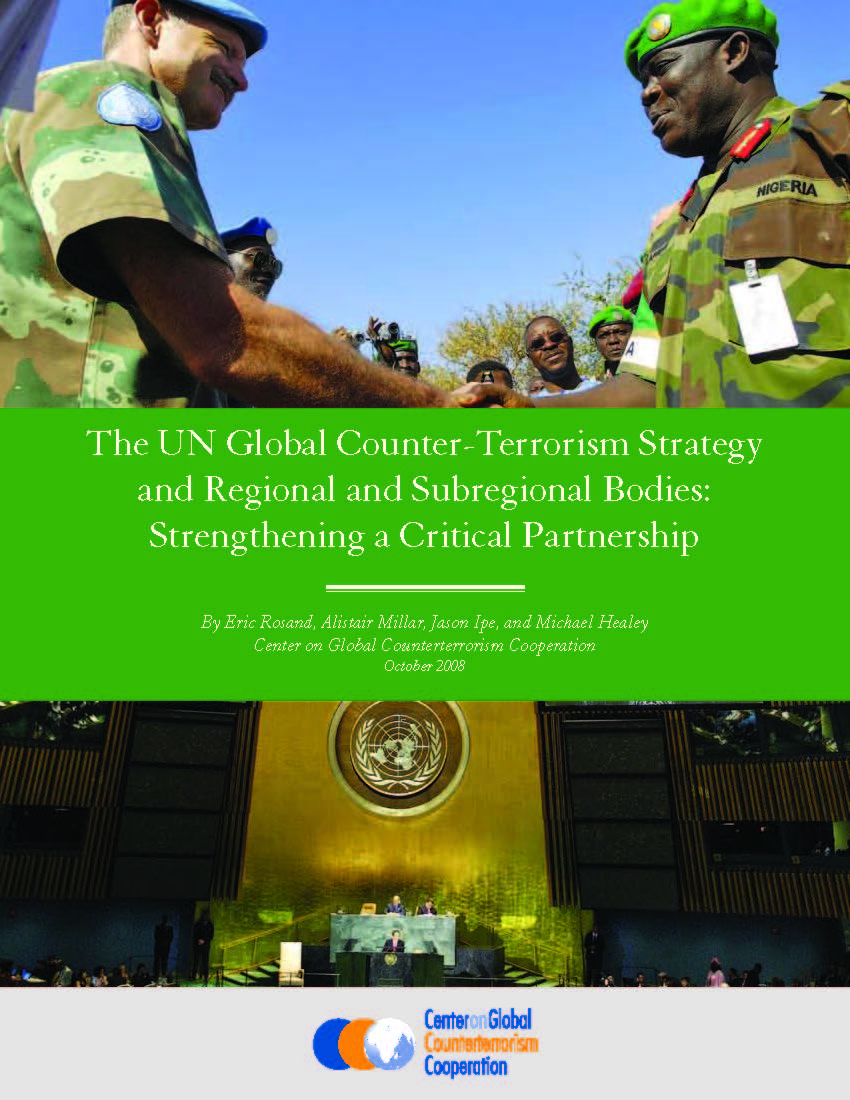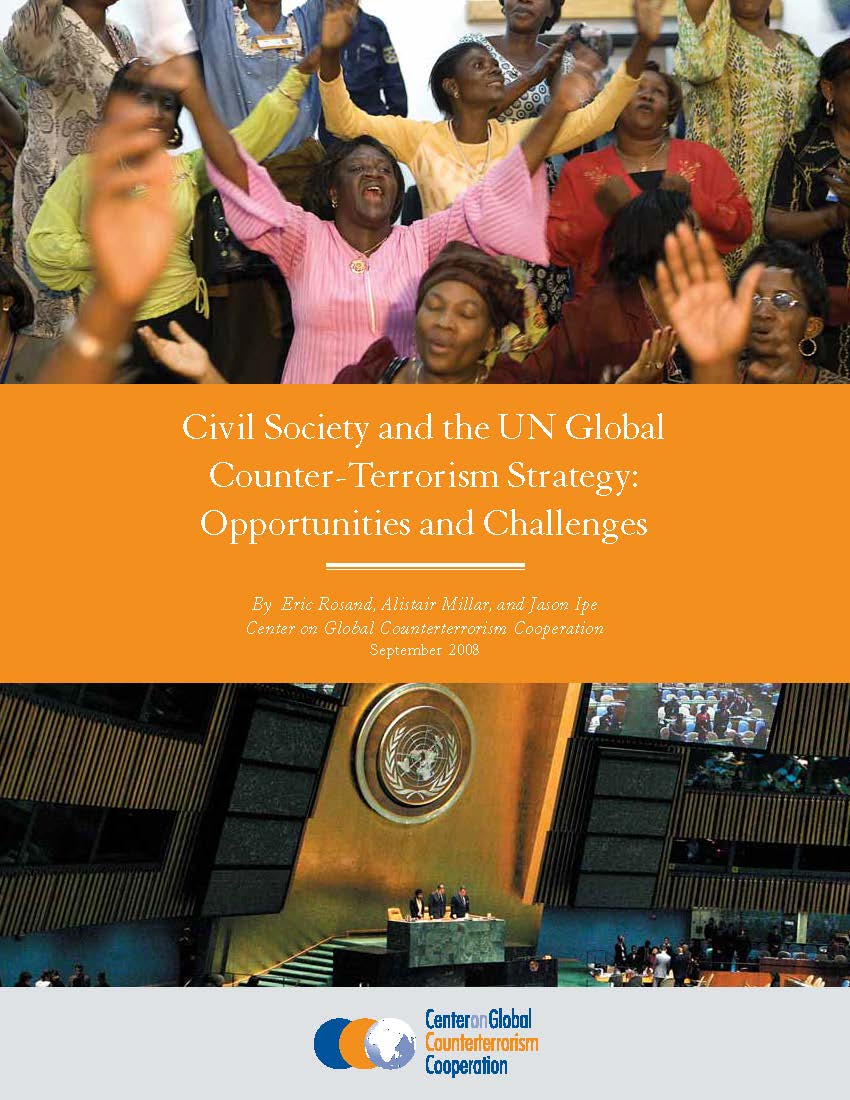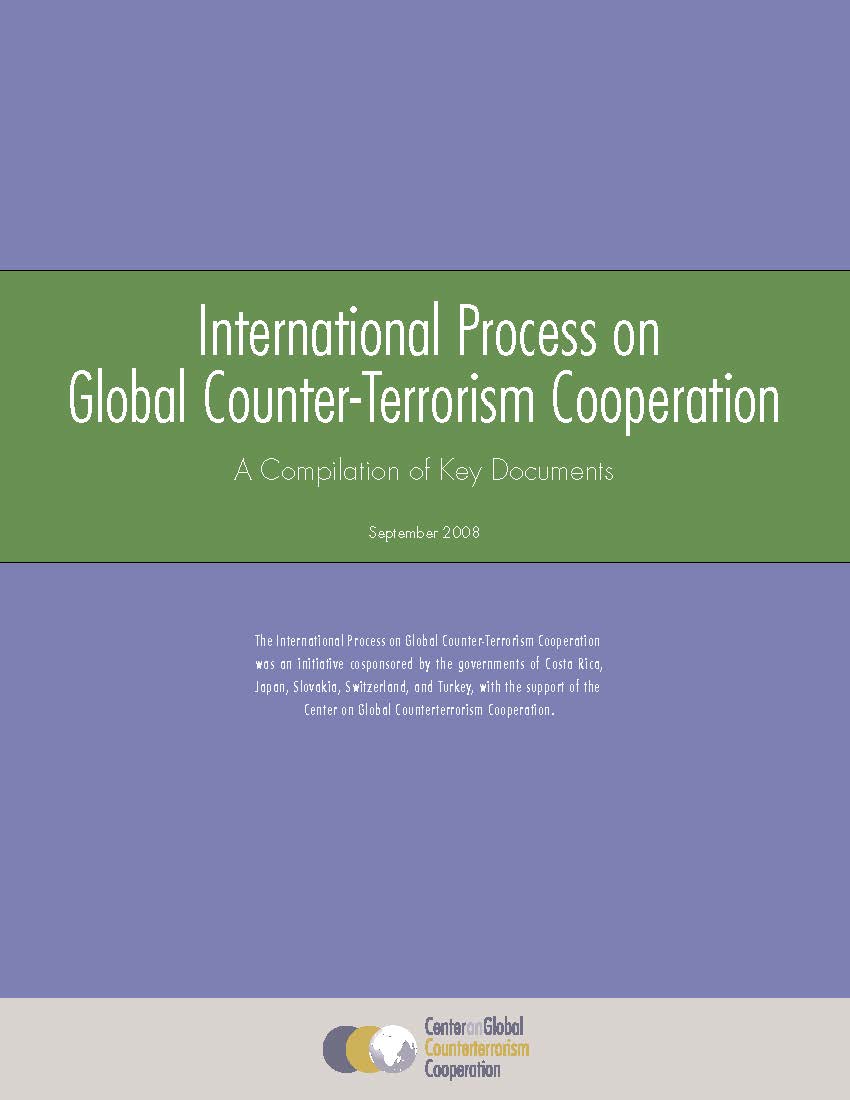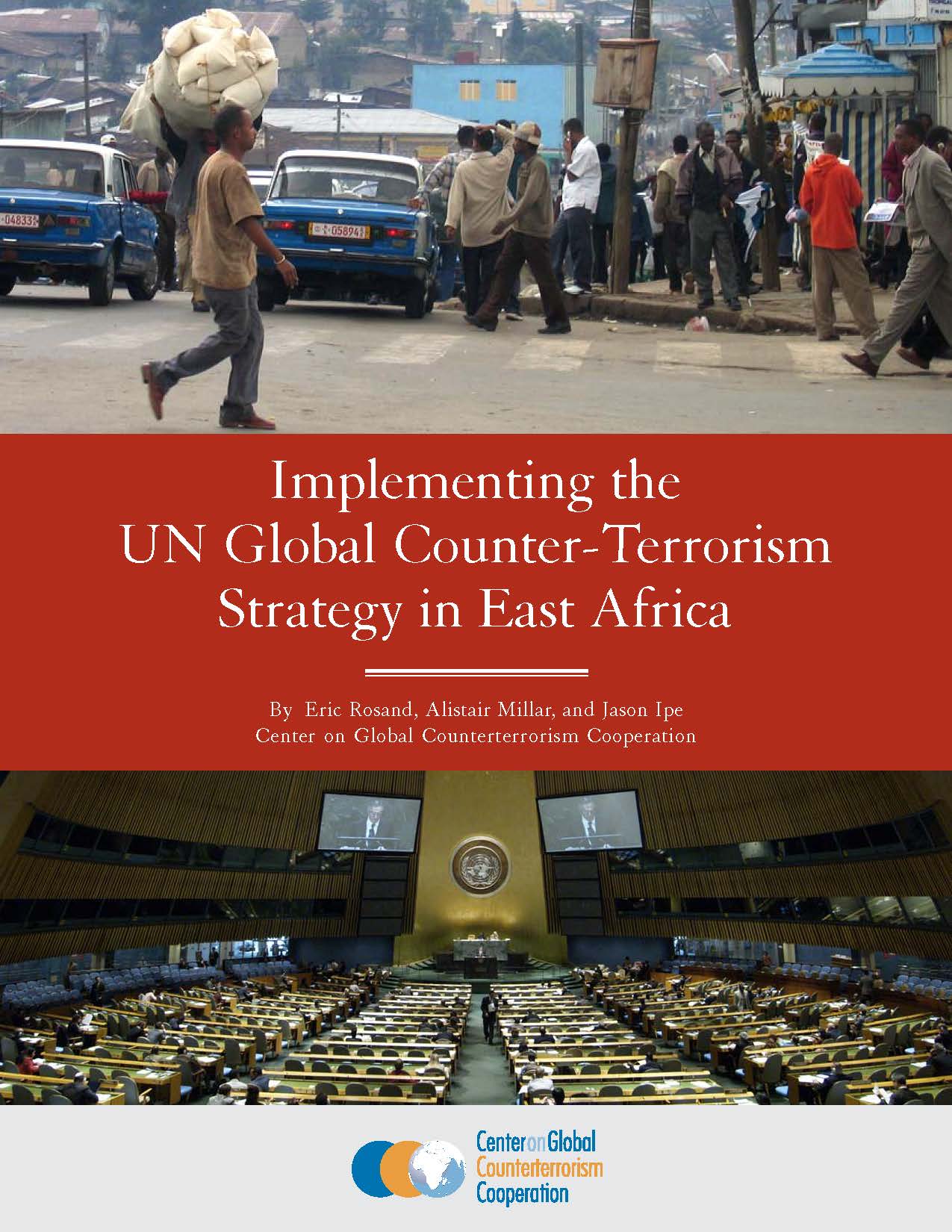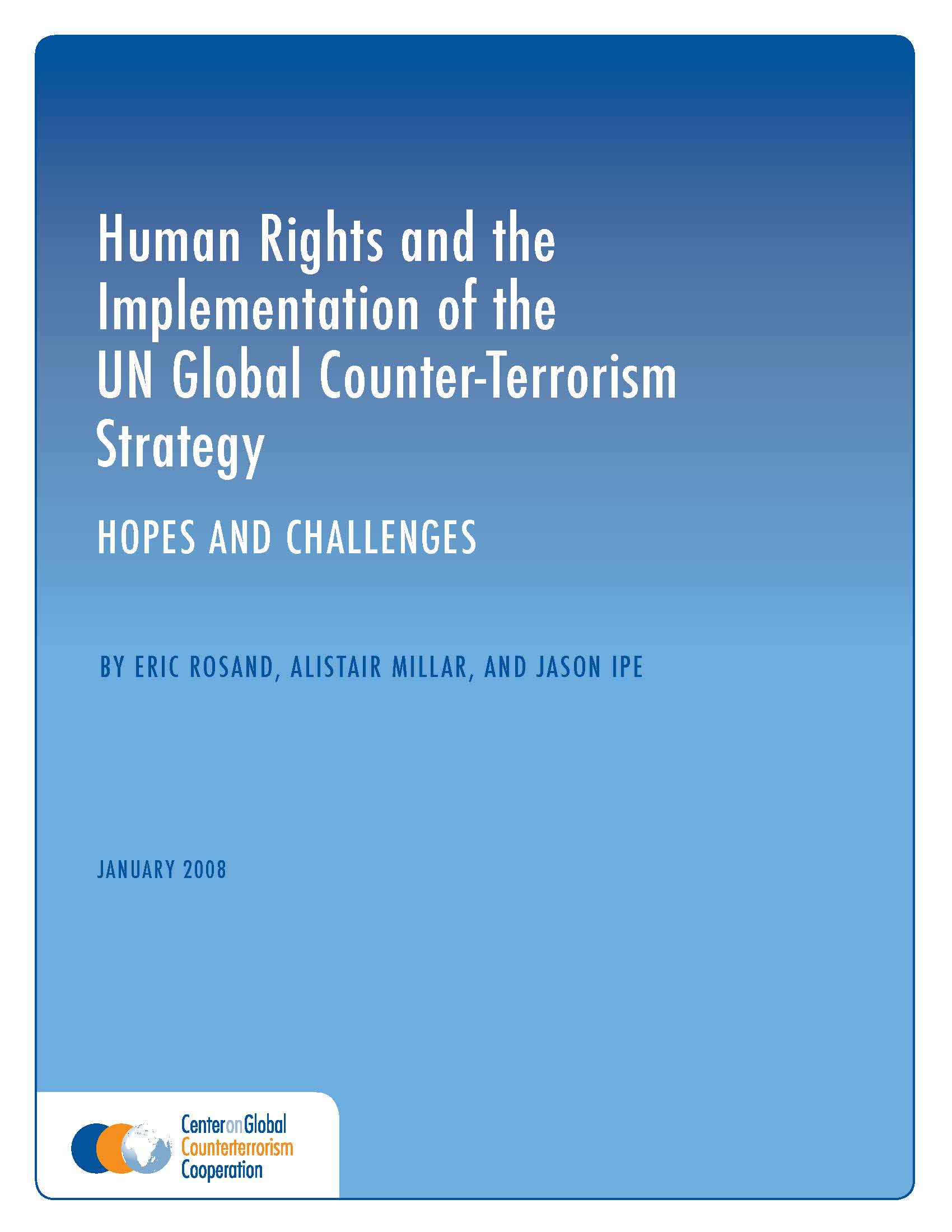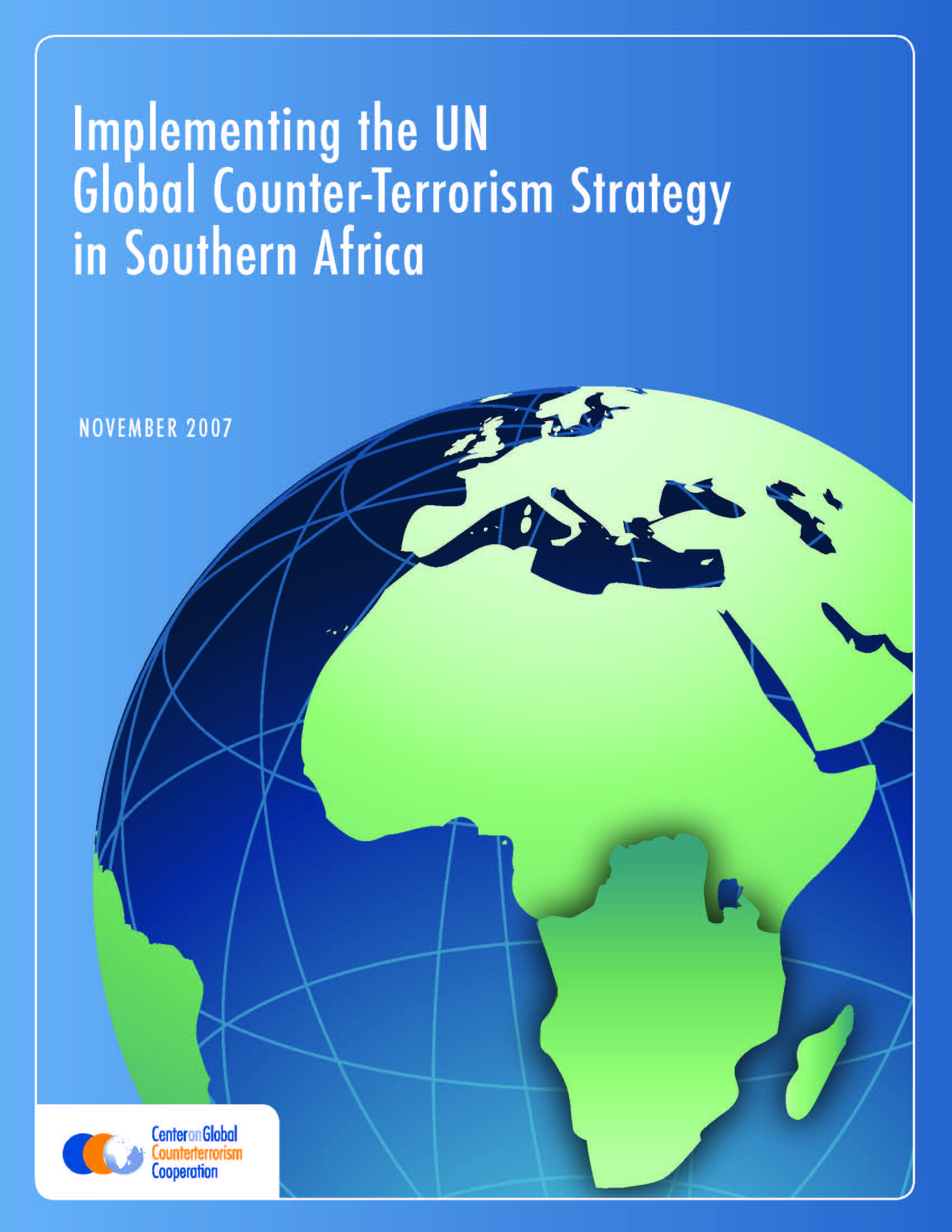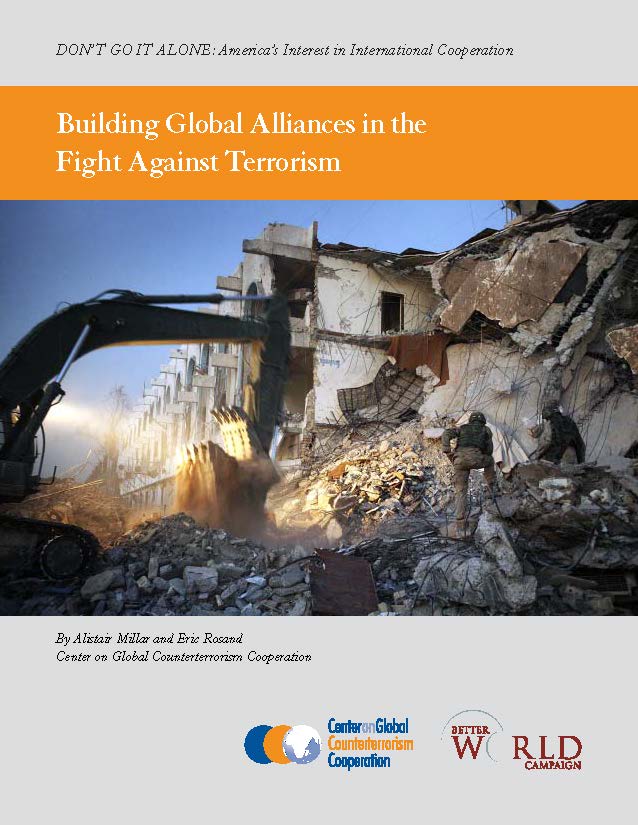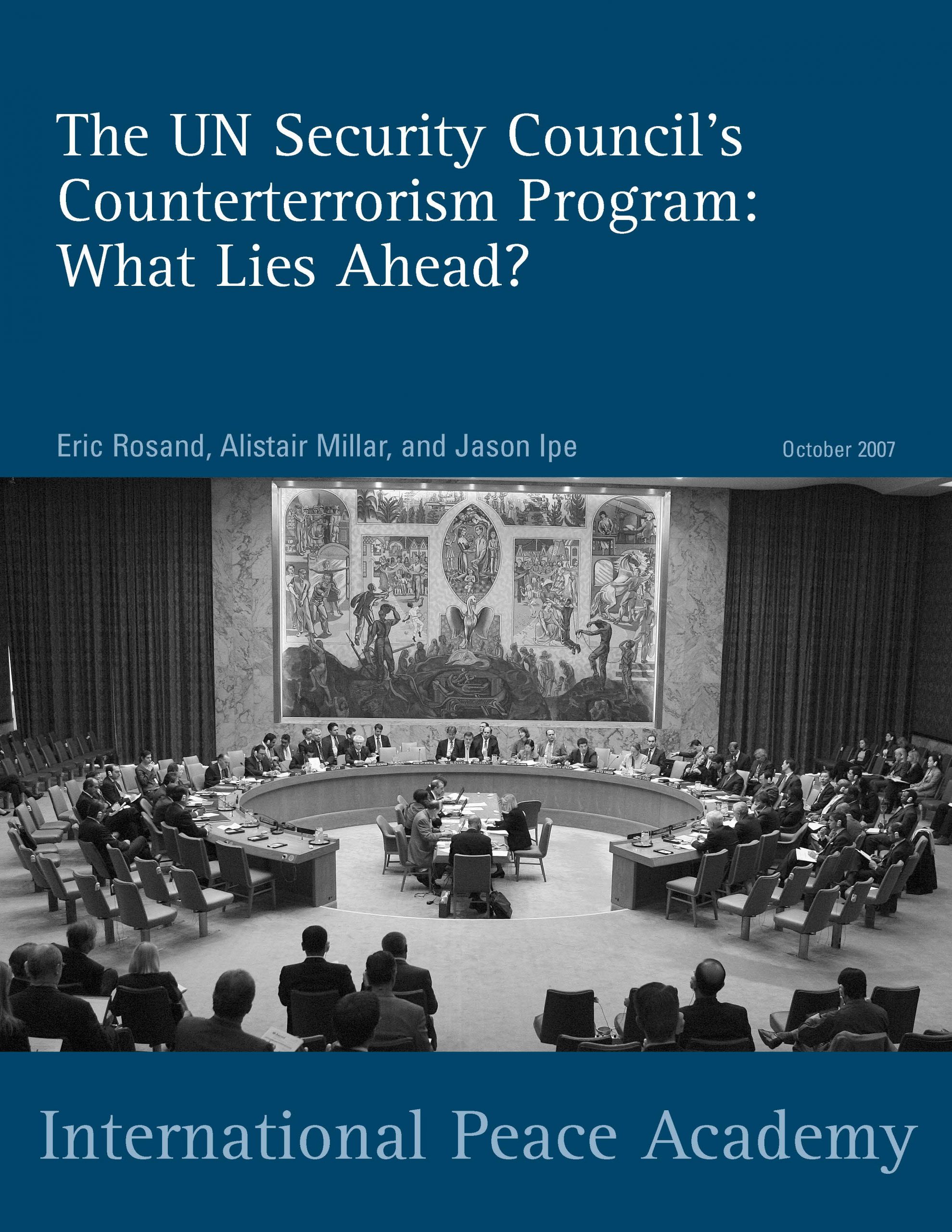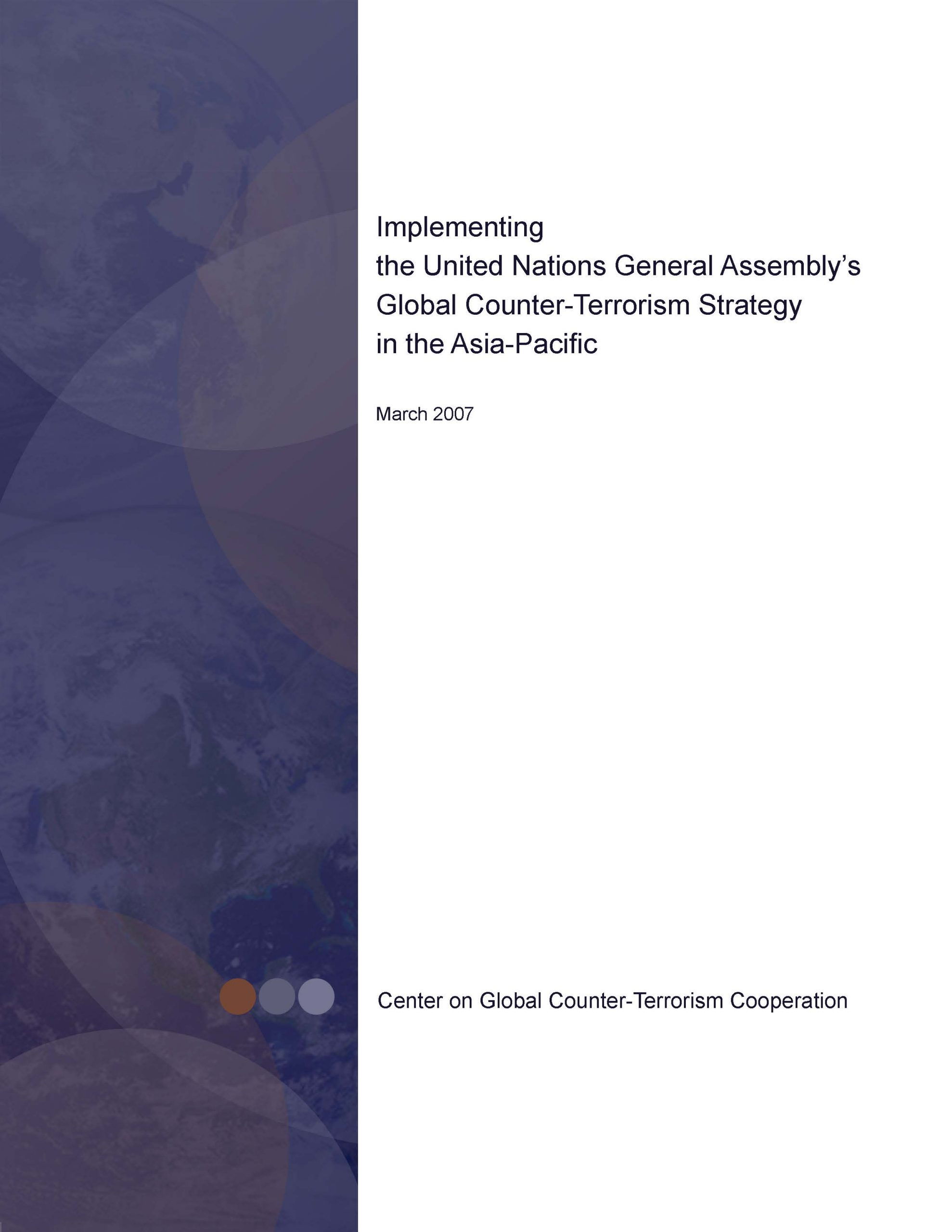The UN Global Counter-Terrorism Strategy and Regional and Subregional Bodies: Strengthening a Critical Partnership
Report — October 2008
This report discusses the contributions that regional and subregional bodies can make in implementing the United Nations Counter-Terrorism Strategy. It provides a region-by-region survey of some of the contributions of those bodies and an overview of counterterrorism-related engagement between regional and subregional bodies and the UN system.
